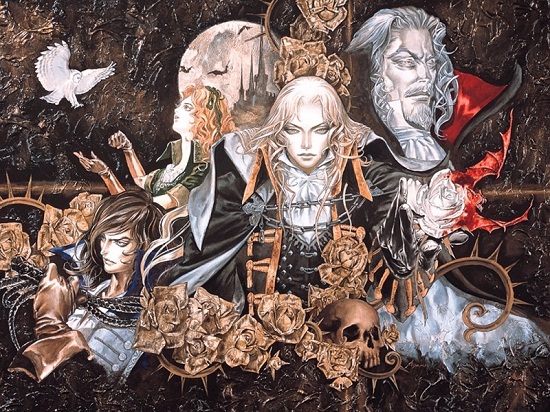
Castlevania is a beloved series that falls into two distinct styles. There is the classic style, as seen with Super Castlevania IV and Rondo of Blood, and the Metroidvania style as seen in Symphony of the Night. Although Symphony is credited with starting the series shift to the latter style, Symphony was actually taking what had been attempted earlier with Castlevania II: Simon’s Quest and doing it right. In addition, contrary to the belief that the developers were taking influence from Metroid, Koji Igarashi has stated that the inspiration was The Legend of Zelda series. To be specific, inspiration was taken from Zelda II: The Adventure of Link, and that game’s level structure and need to find new items and abilities to proceed.
Symphony of The Night is hailed as one of the best games of all time, and it is easy to see why, as well as to see why some dislike it. The game shunned series conventions by adopting RPG mechanics, abandoning the Belmont protagonist after the intro, and giving you control of Alucard instead. Alucard is a character who can become overpowered, but the game’s focus was less on brutal difficulty and more on exploration and puzzles along with the enemies and bosses. There were secrets to find and multiple endings to unlock, including an alternate path that opened up a whole second part of the game. Alucard’s abilities also played a role and spells became prominent here as well, and would later become series fixtures.
The story also played a big role here, and SoTN is when storytelling really took off in Castlevania. Yes, it had been done in Rondo of Blood as well, but now it was a much more involved part of the game. This was no longer a game you would play for a few hours and then be done, but rather a game you would want to play for days to find everything. The game had brilliant music, much like Rondo but with a bigger feeling, and the visuals of the game have aged beautifully when compared to many other games of that era. It is especially notable when compared to the 3D games on the Nintendo 64 that were a complete failure.
Rondo of Blood gave the series a new focus, but SoTN built on that to such a degree that it became the basis going forward. Later games were always compared to SoTN and trying to top it, with only Aria of Sorrow arguably succeeding. There is a reason the game is so beloved and is still regarded as the peak of the series. When you do something right, you capture brilliance and Symphony of the Night was brilliance.

